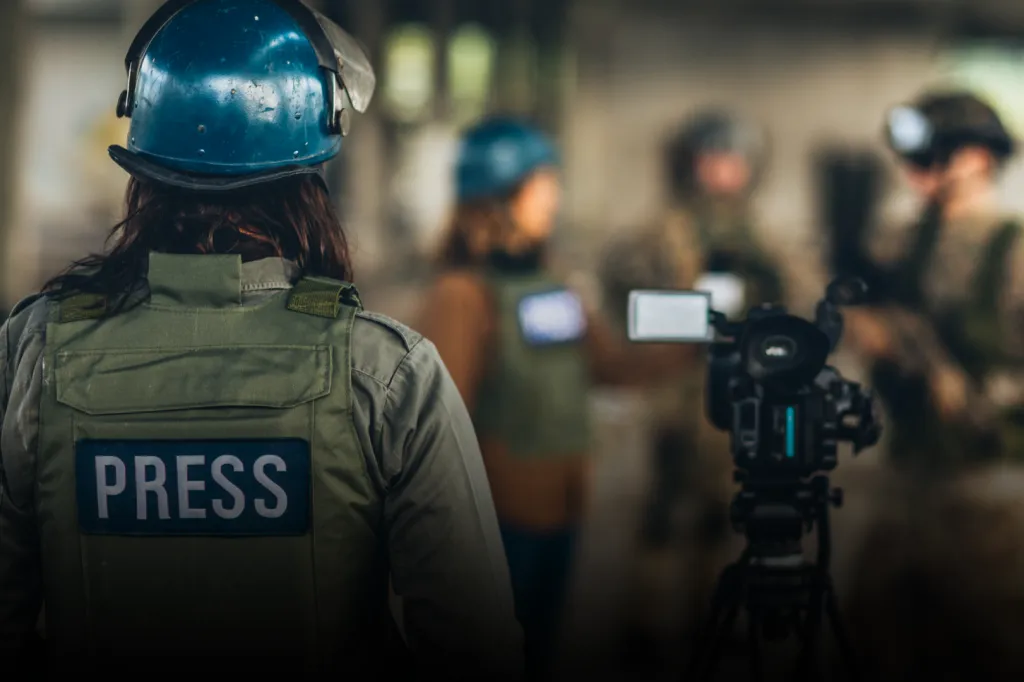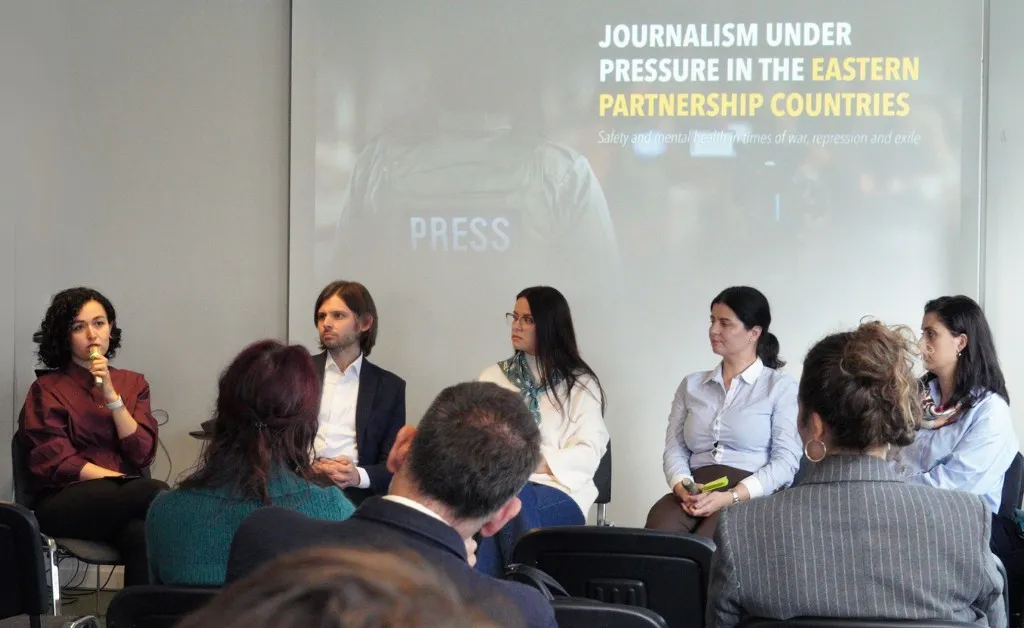Why democracy in the Eastern Partnership needs strong independent media

This message was central to the recent panel discussion in Stockholm. Panellists Lusine Grigoryan from Armenia, Cristina Bobirca from Moldova, Svitlana Stetsenko from Ukraine, and Yauheni Pylchanka from Belarus shared their experiences with Swedish partners, civil society, and media representatives. The event was organised by ForumCiv and Fojo Media Institute within the Swedish Eastern Partnership Network.
Armenia: Hate speech, legal pressure, and digital attacks have increased, often linked to foreign actors.
Lusine Grigoryan described how Armenia’s media landscape remains relatively open but is becoming more polarised. Hate speech, legal pressure, and digital attacks have increased, often linked to foreign actors. More than 160 attacks on journalists were recorded last year, including violent incidents during protests. She also pointed to widening funding gaps after a major donor program ended, leaving outlets exposed before elections.
Cristina Bobirca reported that threats against Moldovan journalists have risen sharply during elections. Ninety-five attacks were recorded in the first nine months of 2025, up from 66 in 2024. Cyberattacks, smear campaigns, and harassment are common. Russian disinformation networks are more active, using fake news and AI-generated content to influence voters. Many newsrooms lack the resources and security systems to respond effectively.
Ukraine: Since the invasion, eighteen journalists have been killed, and over three dozen have disappeared.
Svitlana Stetsenko explained the wartime reality in Ukraine. Journalists face daily risks from shelling, blackouts, and targeted disinformation. Since the invasion, eighteen journalists have been killed, and over three dozen have disappeared. Funding has collapsed after key donors withdrew. Despite this, Ukrainian journalists continue reporting on corruption, governance, and the war.
Yauheni Pylchanka described the situation in Belarus, where independent media have been dismantled. Twenty-nine journalists are in prison. Many others work in exile in Lithuania, Poland, Germany, or Georgia, relying on VPNs and encrypted tools to reach audiences. Legal harassment and surveillance continue against journalists and their families.
Belarus: Twenty-nine journalists are currently in prison.
Zinaida Muradova from Civil Rights Defenders placed these trends in a global context. Civic space is shrinking worldwide. Journalists face physical, digital, and legal threats. More than 100 were killed last year. Governments use restrictive laws to criminalise reporting. Exile offers limited safety due to transnational repression. Mental health impacts are severe. She called for coordinated legal, digital, and psychosocial support, not fragmented short-term aid.
Common patterns across the region are clear. Disinformation and hybrid threats persist. Attacks on journalists are increasing. Funding is unstable and often short-term. Many outlets lack security protocols and mental health structures. Legal protections are uneven. Audiences are often exposed to manipulation and lack the tools to assess information critically.

Support priorities
- Long-term funding to reduce reliance on short projects and provide stability.
- Legal protection against criminalisation, censorship, and arbitrary arrests.
- Digital security to counter surveillance, hacking, and disinformation.
- Emergency assistance, including relocation, legal aid, and equipment replacement.
- Mental health support built into newsroom structures.
- Media literacy programs to help audiences verify information and resist manipulation.
- Stronger solidarity networks and international advocacy to coordinate responses and amplify local voices.
Independent media is essential for democratic accountability and informed public debate. Journalists in Armenia, Moldova, Ukraine, and Belarus continue their work in difficult conditions. Coordinated and sustained international support is needed to ensure they can keep playing this role.
Andra nyheter

The power of people powered Public-Private Partnerships
Public–Private Partnerships (PPPs) are often discussed in terms of roads, power plants, housing, and other large infrastructure projects. But as discussed on the People’s Partnership Podcast, PPPs are...

ForumCiv’s social media accounts labelled as “extremist materials” in Belarus
Important message to our Belarusian followers. Any interaction with our content can now lead to legal consequences in Belarus. Please read the information below and take the necessary precautions for...

ForumCiv enters new strategic partnership
ForumCiv is proud to announce a new three-year strategic partnership with Sida, totalling SEK 137 million.